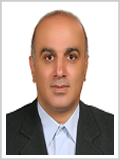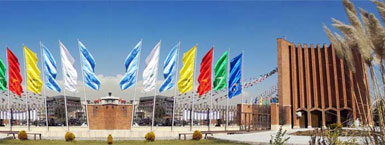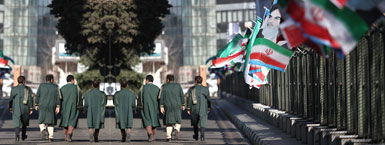
- BS/BA: Electrical Engineering - Electronics
- MS: Electrical Engineering - Electronics Engineering
- PhD: Electrical Engineering-BioMedical Engineering
- Phone: 82883821
- Fax:
- Email: pourmir@modares.ac.ir
- Resume Download
He received the B.Sc. Degree in electronics engineering from University of Tabriz, in 1987, the M.Sc. degree in electronics engineering fromAmir-Kabir University of Technology, Tehran, in 1991, and the Ph.D. Degree in electrical engineering (biomedical engineering) from TarbiatModares University, Tehran, Iran, in1997.
Dr. Firoozabadi currently serves as a Professor of Biomedical Engineering (Professor from 2009, Associate Professor 2003-2009, Assistant Professor 1998-2003 ) and Head of BioMedical Informatics Department at Tarbiat Modares University, and President of Iranian Society of Biomedical Engineering (2007-2014). He has published over 321 papers in peer reviewed journals and international conferences.
He was Research Deputy Dean of Medical Sciences Faculty from 2009-2011, Manager of Apllied Research office(1997-2005) and Head of Medical Physics Department (2008-2010) at Tarbiat Modares University. He has received many awards including the Razie second rank prize of ``Invention, Innovation, Novation Group'' from the Iranian National Research Center of Medical Sciences (NRCMS) for ``design and implementation of isolated heart pacing, data logger and the signals analyzer system,'' in 2004. He has also received the awards of ``Outstanding Iranian Student, Country-wide" in 1994 and "Outstanding Student of Tarbiat Modarres University" in 1993 and 1994. He has been the co-recipient of International Khwarizmi Award of ``Outstanding Research Team" from the Iranian Research Organization for Science and Technology (IROST) for ``Tehran Cybernetic Arm'' project in 1990.
His research and teaching interests include theory and application of bio-electromagnetics, Human-Machine Interaction, bioelectric phenomena and electrophysiology, bio-instrumentation, and biological signal processing. He has worked in “Tehran Cybernetic Arm Group (Outstanding Research Team in Iran)” since 1987 He is concurrently working in three branches:
Recently, in one of His research scopes, he and his students are designing a human-machine interface in which the user can control a virtual/artificial arm/hand, wheelchair, Tele-ROBOT or any machines. As it is well-known, in traditional Human-Machine interfaces, the user should adapt her/himself to an applicable machine. In their opinion, one suffers from too much cognitive and mental stress during training or machine-tuning processes. But, in their plan/ongoing-research, the machine should try to detect user affective and affordances and adapt itself using bio-associated measures, whilst the user is using the machine. Thus, they will have a bi-direction human-machine interaction/co-operation. His hypothesis is that during this interaction the cognitive pressure will be reduced and the user feels more satisfied. As a result, the system facilitates the learning process and shows higher control efficiency. For the application of the above idea They want to decrease external force/load upon the system (Human+ Machine + Environment) by biological signals conveying information about the human’s brain-state (cognition and their mental fatigue). Then, he would like to focus on the use of the forehead biopotentials signals for extracting the affective/attention/emotion and cognitive control and developing Human-Machine systems. |



